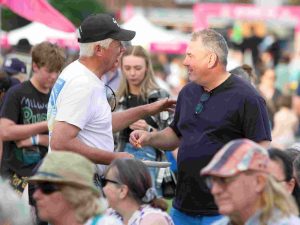ANZAC Day our national day of remembrance causes us to pause and reflect on those who made the ultimate sacrifice for God, King and country in the Great War but there is another side to the day to consider: other victims of war – those left behind to mourn both victor and vanquished. Each soldier was a loving son, a beloved husband, a devoted father, fond brother, a lover and good friend, someone who cared and in return was cared about.
Deusvult or God’s will is often quoted on military headstones as an acceptance of the fate of war and as an acknowledgement of the humility and pain of a suffering family having lost a loved one in the cause of the greater good. At its most austere, a soldier lived simply, died bravely in total acceptance of whatever is, is best.
But remember just as it takes two to make love, it also takes two to make war. Soldiers on
both sides had loving families so perhaps the true compassion of the victor extends through the shared suffering of the loss of a loved one, where to love one’s enemy in terms of Luke 6: 27- 28 overcomes and transcends a sad world through mutual and extended kindness.
It is Mothers who have a greater understanding and therefore compassion in dealing with the death of loved ones and one particular epitaph comes to mind which has special tenderness. It reads:
‘Tread softly o’er my darling son’s grave for a Mother’s love lies here’
This poignant message is indicative of remembrance of not only a son who did not return
home from the war but is the lament of all Mothers whose sons who did not return either.
If this is victory, then let God stop all wars
Each of these crosses is a memorial to a soldier
killed in the Great War 1914-1918, some known only unto God. Allies and enemies alike
gave their lives for a cause to become united in death, mourned with love, always
remembered.
He Did His Duty
On ANZAC Day recall the battles, honour the dead, salute the soldier but remember the man.










